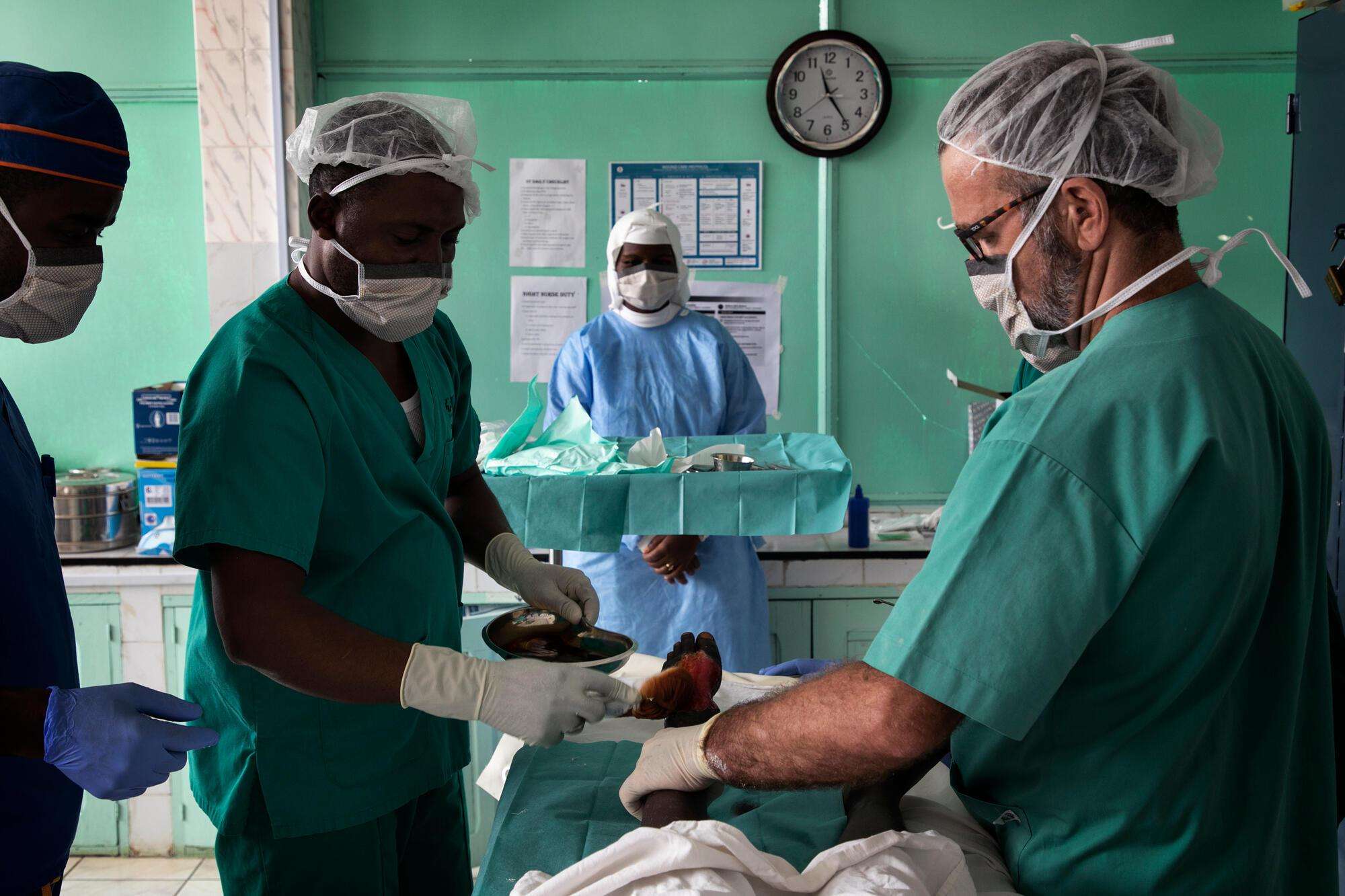YAOUNDÉ/NEW YORK AUGUST 3, 2021—The international medical humanitarian organization Doctors Without Borders/Médecins Sans Frontières has been forced to withdraw its teams from the North-West region of Cameroon, an area severely impacted by years of armed violence between security forces and separatist groups. MSF has not been able to operate in the area since its programs were suspended by Cameroonian authorities almost eight months ago.
"We cannot [remain] in a region where we are not allowed to provide care to people," said Emmanuel Lampaert, MSF's operations coordinator for Central Africa. "Unfortunately, we cannot keep our staff on standby any longer, so we have no choice but to withdraw our teams.”
MSF will keep a small liaison office in Bamenda, the regional capital, to continue dialogue with the authorities in hopes of being able to return to the area in the future.
MSF provided free emergency medical care and ambulance services in the North-West region from 2018 until its activities were suspended on December 8, 2020. The suspension came after a series of unfounded allegations accusing MSF of supporting local armed groups, which MSF has consistently denied both publicly and in meetings with authorities. Despite months of engagement, authorities did not grant MSF permission to resume medical activities.
"Our suspension significantly reduces access to medical services in an area where communities are badly affected by armed violence," said Lampaert. "We hope that the provision of medical humanitarian assistance to everyone, without exclusion, will still be possible. People are paying a very heavy price for this situation. If the authorities decide to lift our suspension, we will resume our medical activities as soon as possible."
Nearly four years of crisis in the North-West region has displaced hundreds of thousands of people. Many health care facilities are no longer functional, and financial, security, and geographic constraints make it difficult for people to access those that have remained open.
MSF was one of the few international nongovernmental organizations (NGOs) offering free medical care to communities in the North-West region. Our teams managed the only free 24-hour ambulance service in the area. Each year, tens of thousands of patients benefited from MSF’s support in the region.
"It is essential that other organizations step in to provide additional support to the Ministry of Health to ensure the provision of care for vulnerable people," said Lampaert. "This must be done with respect for health facilities, staff, and patients. Since 2018, we have witnessed numerous attacks and acts of intimidation against health care facilities—MSF was not spared. We [continue to] call on all parties to the [conflict] to respect all health care providers, [including] members of NGOs and the Ministry of Health. Any threats or violence against them or their patients is unacceptable."
From January 2020 until the suspension of its operations in December, MSF teams in the North-West region cared for 180 survivors of sexual violence, provided 1,725 mental health consultations, performed 3,272 surgeries, and transported 4,407 patients by ambulance—more than 1,000 of whom were women in labor. MSF-supported community health workers provided 42,578 consultations, primarily for diseases such as malaria, diarrhea, and respiratory tract infections. MSF medical staff also treated direct victims of armed violence in the region.




